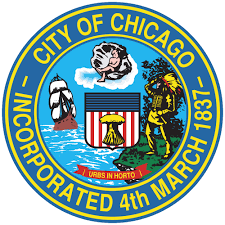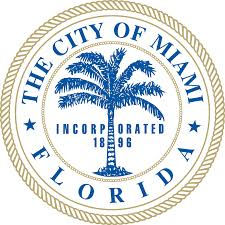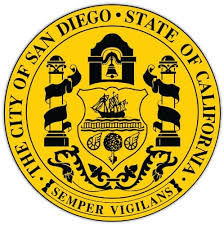USFL to Expand to Chicago, Miami, San Antonio and San Diego
- USFL LIVES
- Feb 13, 2021
- 5 min read
Sporting News, April 30, 1986
Football fans in Chicago, Miami, San Antonio and San Diego may be spending their last long spring waiting for their sports obsession to return. Today in New York City the USFL announced that these four cities would begin play in the spring league in March of 1987. The expansion committee three weeks ago provided the league ownership with eight proposals in seven cities, and this week the owners met to debate and discuss the merits of all eight. It was known going in that one of the two Chicago bids would be accepted, a result of a negotiation with television partners ABC and ESPN to replace the relocated Baltimore Blitz. The other six bids represented six markets the USFL coveted. In competition with bids in Portland, Seattle and Atlanta, it appears that Miami, San Antonio and San Diego came out on top. This appears to be an acknowledgement that southern cities have proven to be fertile markets for the league, and having more fair weather sites, particularly for early season games in March and April, is certainly a plus.
Many were expecting one of the northwestern cities to earn a bid as a means of opening up a new region to the league, but owners seemed to favor the fair weather, and deep pockets bids from cities in California, Texas and Florida. And so the process will now begin in all four cities to build a front office, design a team identity, hire coaches and scout prospects. The league is expected to hold an expansion draft in October, in which teams can select players from the existing 16 franchises, and their usual territorial and open collegiate drafts in December. Camps will open in January and in mid-March these four cities will experience USFL football, Chicago for the 2nd time, the others for the first. So, just who are the winning ownership groups and what can we expect from each team? Here is what we know now about the four winning proposals:
CHICAGO

The Windy City had two bidders, both connected to the local sports scene, as Eddie Einhorn, minority owner of the Chicago White Sox of MLB, and Bill Wirtz, owner of the Chicago Blackhawks NHL Club, competed for the rights to the Chicago market. Wirtz won out, in large part due to ongoing concerns that Major League Baseball was balking at the prospect of dual ownership between the White Sox and a USFL franchise, as well as a shared stadium situation with Mr. Einhorn pitching Comiskey Park as the home to his USFL franchise. Mr. Wirtz and his financers had already acquired a commitment from Soldier Field, a more suitable football only stadium, for his proposed franchise. The lack of conflicts with the NHL as well as a more stable stadium and financing plan apparently tipped the decision in favor of the Blackhawks owner. Next up for the new franchise is hiring front office personnel and a name the team contest with the Chicago Sun-Times. Early frontrunners appear to be the Chicago Hogs, Chicago Fire, Chicago Machine, and Chicago Skyhawks, each appealing to a different aspect of the city’s history and identity.
MIAMI

The ownership group led by Sherwood “Woody” Weisner, a Miami real estate developer, had to walk a tightrope in their presentation, as one of their strongest assets was the track record of the two other Florida USFL teams, with both Tampa Bay and Jacksonville being league leaders in attendance, while also recognizing that there were concerns about further dividing the Florida fan base. Weisner made a strong case about the independence and distance of the Miami fanbase from their two northern neighbors. The group is also well-funded, has some celebrity backing (including Don Johnson of Miami Vice fame and former Dolphins QB Bob Griese), and considerable backing from most league owners outside of Florida. The proposing ownership group, while not having a contract in hand for the Orange Bowl, was confident in their ability to obtain a lease for the current stadium used by the NFL’s Miami Dolphins and the University of Miami Hurricanes.
SAN ANTONIO

The bid put together by lead financier Clint Manges was predicated on the passion for football in Texas, the rapid growth of the San Antonio market, the lack of competing MLB or NFL franchises, and a lease already in place for Alamo Stadium, with the prospect of a new domed stadium already in the works in the Alamo City. While some owners expressed concern that Mr. Manges’ financial reports were not as revelatory as some other bidders, these did not prevent the owners from choosing San Antonio by a 13-3 vote. Mr. Manges has already expressed an interest in signing a head coach from within the pantheon of Texas legends, which leads many to believe that he will target former Longhorns head man Darrel Royal for the position. As to a team identity, Mr. Manges has said that while the name has not yet been selected, he expects it to be one which reflects the unique history of Texas and San Antonio while also speaking to today’s fun-seeking football fans.
SAN DIEGO

William Tatham, a Fresno-based real estate developer, brushed aside concerns expressed by Los Angeles Express ownership, that his chosen franchise location, San Diego, would cannibalize the already tentative Express fanbase. Tatham, along with former Charger legend Lance Alworth, present to add some star power to the bid, made the case that San Diego was a distinct market, with its own fanbase, and that LA, with nearly 10 million inhabitants in and around the city, had more than enough population to survive the presence of a rival just down Highway 1. With financing solidly in hand, the only question for the San Diego bid was the availability of Jack Murphy stadium for the spring league. This question was glossed over by the ownership group as they focused more on the financial wherewithal and perfect climate to make San Diego a potential attendance leader and a strong contender for future championship game placement. Now that they have been approved, the Tatham group will need to work with Jack Murphy Stadium to agree upon a suitable lease while also looking to build a staff for the as-yet unnamed franchise.
For Portland, Atlanta and Seattle, it is back to the drawing board. The case may not be over for these cities. As we saw this past year with the relocation of both the Chicago Blitz (Baltimore) and the Boston Breakers (New Orleans), there is always the possibility of luring one of the weaker USFL franchises to greener pastures. While no current league owner is expressing a desire to sell, with the possible exception of New Jersey’s Donald Trump, and relocation is a prospect the league is unlikely to consider except in extreme cases, there remains hope that within the next few years either relocation or yet further expansion could be on the horizon.
For now, it is time for fans in the four chosen cities to get excited about the prospect for spring football, to get involved in team identity building, and to get ready for the USFL to arrive in March.



Comments